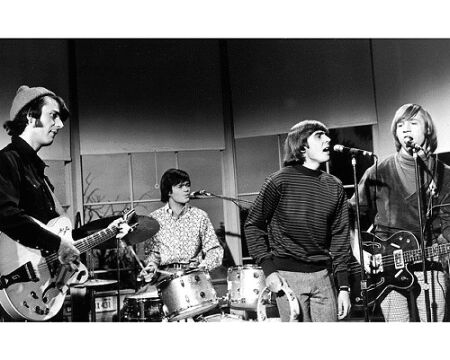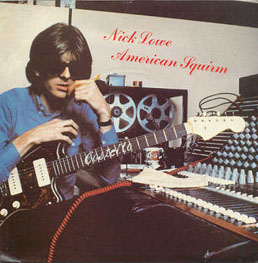
Townsman Saturnismine sent in the following thoughts and asks the Hall for its advice.
Thankfully, every now and then, the Great Big Music Machine in the Sky spits something out that’s flawed, irregular, maybe not even likable, but possessing qualities so intriguing that we can’t look away, even if we sense tragedy in the final frame. This time it’s a British soul Jewess named Amy Winehouse. She’s a one woman freakshow of mixed signifiers, a completely “hot mess” if you will: big hair, tattoos, a seemingly authentic “other woman” persona, a fine pair of husky pipes, and a feel for vocal phrasing so subtle that the utterance of a single note can make this Townsman feel connected to the Universal life force at its very source.
Just as the Summer of ’06 was The Summer of (Gnarles Barkley’s) “Crazy”, Summer ‘07 may very well go down in pop annals as “Rehab” Summer. If you haven’t heard this neo-Ray Charles handclapper in the supermarket, the Laundromat, or while waiting for Sethro Baer to fix your teeth, then you live under a rock. For cryin’ out loud, this is the song that made my mother teach herself how to download music from iTunes. For those of you who haven’t heard “Rehab” (from Winehouse’s late 2006 release Back to Black), take a listen.
It’s nice to hear a distinctive voice interpreting and performing a song. It’s also a pleasure to hear some thoughtful production that manages to sound new (without embracing studio-by-numbers, Sam Ash trends) while at the same time sounding vintage.
If we dig deeper into Back to Black, we find everything “Rehab” promises – and more: lyrics with intelligent word play that doesn’t obscure meaning; nuanced, but never labored sounding vocals on every track. But perhaps most impressive is that Amy wrote the songs. We hear an in-depth tutorial in the “isms” of Billie Holliday, Spector’s girl-groups, Motown, Memphis, Aretha, and Amy’s British girl forebear in the pursuit of Americanness, Dusty Springfield. Somehow, we also hear more than a few fucked-up-isms stolen from the bottom of Rickie Lee Jones’ bag of tricks. But Amy hasn’t just skimmed the surface in order to graft this or that move from her idols. She’s inspired. She “walks with” her idols rather than looking up to them. One imagines that she’s been listening to the stuff (and nothing but this stuff) and singing along all her life.
The combination of sadness and bounce in “Me & Mr. Jones” is so evocative of a post-war/pre-Beatles past that it automatically conjures images of too much lipstick, cat glasses, and grainy 8-mm movies of children in footy pajamas around Christmas trees spliced with, oh, I dunno…equally grainy footage of JFK’s head splattering all over Jackie O’s pink coat. But what really make “Me & Mr. Jones” special are little moments like the one at 0:20. Check how Amy drops her throat into her heels to sing the words “Slick Rick gig.” If we suspected, before this utterance, that we were listening to the bitch offspring of Ma Rainey, Billie, and Ronnie, we’re sure of it by 0:26.
The album’s crowning jewel is “Love is a Losing Game”, a pungent chunk of turf from Nelson Riddle’s backyard, featuring a devastating, harsh, but vulnerable and hesitating vocal. At 0:46, Amy tosses the word “love” across a sea of strings with a sad carelessness rarely mustered by singers in any era. Effortlessly, she has shared with us an exceedingly private moment, when she has mournfully, but absentmindedly thrown something into the dustbin that was once more important to her than anything else in the whole world; heartbreaks have turned love into a trifle that has been gathering dust on the mantle, something obsolete that needs tossing before it becomes a problem again.
Choose any moment to focus on her voice, you’ll find stuff like this. Back to Black is an ocean full of treasures buried beneath the gravel at the bottom of the sea.
And if there’s any question as to whether or not Amy can bring this kind of heat live, search Youtube for her Letterman performance, or check this one: a cracked, yet powerful reading of “Rehab”…
…all while fixing her hair! Say what you want about some of the more affected vocal stylings in this appearance, the girl’s got “stuff.”
And this is where it gets complicated. Continue reading »






